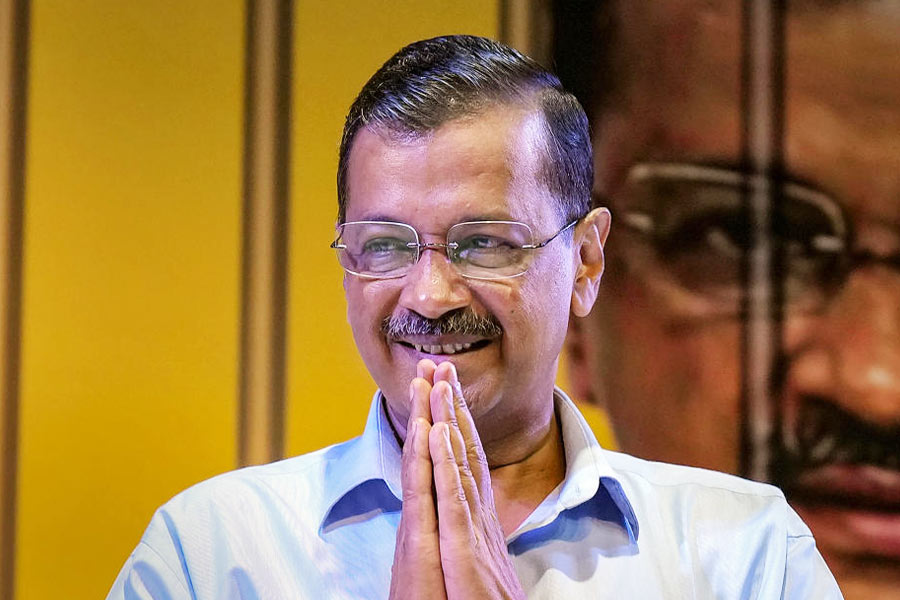The Supreme Court on Friday granted bail to Delhi Chief Minister Arvind Kejriwal in the corruption case lodged by the CBI in connection with the excise policy 'scam', saying prolonged incarceration amounts to unjust deprivation of liberty.
A bench of Justices Surya Kant and Ujjal Bhuyan granted the relief to Kejriwal on furnishing a bail bond of Rs 10 lakh, and two sureties of like amount.
Kejriwal, who was arrested by the ED in the excise policy case on March 21, was granted interim bail on May 10 for campaigning in the Lok Sabha polls and has been in jail since June 2 when he surrendered.
The top court directed Kejriwal not to make any public comment on the merits of the case and added that terms and conditions as imposed in the ED case would also be applicable here.
The top court, while granting him bail in the ED case, had said that Kejriwal cannot visit his office or the Delhi Secretariat and not sign any official file unless absolutely necessary to obtain the Lieutenant Governor's sanction.
It said completion of trial was unlikely to occur in the immediate future and rejected the apprehension of tampering by Kejriwal.
Justice Bhuyan, who wrote a separate judgement, concurred with Justice Kant on grant of bail.
However, Justice Bhuyan questioned the timing of Kejriwal's arrest by the CBI and said the agency's aim was to frustrate grant of bail to him in the ED case.
I fail to understand the CBI's urgency to arrest Kejriwal on cusp of release in the ED case when it did not do so for 22 months, Justice Bhuyan said.
He said the CBI can't justify arrest and continued detention citing evasive replies by Kejriwal, and added that non-cooperation cannot mean self-incrimination.
"The CBI must dispel notion of being a caged parrot, must show it is an uncaged parrot," Justice Bhuyan said.
It would be travesty of justice to keep Kejriwal in custody when he has got bail in the ED case on the same grounds, he said.
Justice Bhuyan said he has serious reservations on the conditions imposed in the ED case on Kejriwal which bar him from entering the CM's office and signing files.
"I am not commenting on conditions imposed on Kejriwal due to judicial discipline as it was in separate ED case," he added.
The bench had on September 5 reserved its verdict on the pleas.
Kejriwal has filed two separate petitions challenging the denial of bail and against his arrest by the CBI in the corruption case filed by the central agency.
The AAP chief was arrested by the Central Bureau of Investigation (CBI) on June 26. He has challenged in the apex court the Delhi High Court's August 5 order which upheld his arrest in the corruption case.
On July 12, the apex court had granted interim bail to Kejriwal in the money laundering case.
The top court had referred to a larger bench, preferably of five judges, for in-depth consideration of three questions on the aspect of "need and necessity of arrest" under the Prevention of Money Laundering Act (PMLA).
During the arguments on September 5 on Kejriwal's plea in the corruption case, the chief minister had vehemently opposed in the apex court the CBI's contentions that he should have approached the trial court first for bail in the corruption case. Questioning the maintainability of Kejriwal's pleas, Additional Solicitor General S V Raju, appearing for the CBI, had submitted that even in the money laundering case in which he had challenged his arrest by the ED, he was sent back by the apex court to the trial court.










